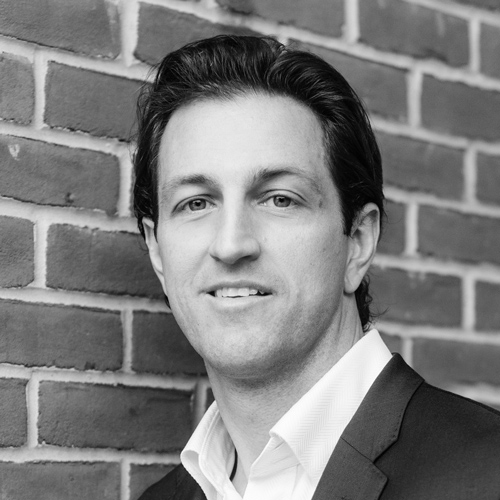By his own account, acting as general counsel for Mars’s global food, drinks, and multisales business is a sweet deal for Khaled Rabbani. However, it’s not the ready access to all those delicious sugary treats that he’s referring to, or any of the other products produced by Mars companies, including pet food, rice, sauces, the Wrigley label, or CocoaVia, a cocoa-based supplement that promotes healthy blood flow.
Instead, Rabbani cites Mars’s five principles: quality, efficiency, responsibility, mutuality, and freedom. These are the essential moral and ethical codes that serve as his source of pride for working at one of the world’s premier candy, food, and pet food producers.
But to understand Rabbani’s Mars pride, one has to travel back to 2003 before he joined the company. At the time, Rabbani was considering a partnership with his then-employer, a Washington, DC, law firm. He loved his corporate practice and the people he worked with, and he wasn’t of mind to abruptly pivot his career into the role of general counsel and corporate affairs director for the Middle East, Africa, India, and Southern Europe—a position that complimented Rabbani’s Netherlands upbringing as the son of Palestinian parents.
The more he investigated, the more attracted he was to the company. So he took the leap and immediately found himself immersed in the central focus of Mars: doing well in business by doing good for people and the planet.
As a lawyer, the change from the typical legal mind-set to the Mars thought-process took some effort. However, Rabbani loved that Mars’s philosophy resonated with his own sense of principles almost seamlessly. “As a lawyer, getting the best deal for your client is the primary goal,” Rabbani explains. “At Mars, however, the best decision doesn’t always track that conventional expectation. Instead, with Mars, my job is always to identify whether our position is consistent with our five principles.”
These five principles comprise the foundational tenets upon which Mars has operated since its inception in 1911. From his first day on the job, Rabbani was impressed with the depth and breadth of the company’s commitment to practicing these principles in every decision it makes, regardless of where in the world that decision is happening.
“Quality is critical,” he says. “Mars doesn’t sway from its high standards for both food safety and consistency, which is why every Mars product—such as a Snickers bar or pouch of Uncle Ben’s rice—meets the same quality standards, regardless of where the product is produced.”
The drive for quality overarches the other principles, too, because achieving anything less than the optimal expression of those would ultimately affect the quality of the product and the company. For example, Mars manifests its commitment to responsibility by seeking the cleanest, most efficient processes with which to produce its products. Consequently, finding renewable energy sources is becoming more significant to its manufacturing decisions. And mutuality is at the forefront of every decision between the corporation and its many suppliers.
In India and Pakistan, where the company sources much of its Uncle Ben’s Basmati rice, the company has worked closely with about six hundred contract farmers to increase their yields, reduce water waste, and generally improve not only their practices to benefit the community in which they work, but also the quality of the product.
“It’s not always possible to quantify the return on these investments, but the theory is that better yields and quality benefit the farmers,” Rabbani says. “Our consumers want to purchase our rice because Mars has done the right thing by these farmers and delivers a high-quality product. It’s not just about the dollars, but rather about differently quantified returns—mutually shared benefits and improved products.”
As general counsel for two of Mars’s business segments, Rabbani witnessed the growth of the company’s legal department from only nine lawyers in 2003 to more than sixty lawyers today, as well as many locally sourced legal resources. He’s in charge of all things legal, including the food and drinks business, which may include products, human resources, litigation, compliance, training, and commercial transactions. He uses his legal tools often, but the “majority of the legal issues are really business issues.” “We consider how any decision will affect things beyond the legal requirements,” he says.
He credits, in part, the company’s fifth principle of freedom for accommodating a higher perspective for corporate determinations. That freedom permits the company to choose how it does business, and it always chooses to do the right thing—something that, in Rabbani’s opinion, “sets it apart from all others.”
Looking back, Rabbani has never regretted his decision to leave private practice. Upon reflection, he identifies three reasons why he took the job, and the first concept that comes to mind is the company’s five principles. It’s also the fact that Mars invests in great people who are a joy to work with. “Mars’s legal department includes some of the best lawyers in the world who know how to partner with the business while protecting it at the same time,” he says.
The third reason is because of the intellectual challenge. A primary enticement to Rabbani was the opportunity to work internationally with both legal entities and local production facilities. “I absolutely loved it,” he says. “I got to know those foreign countries in a way I never had the opportunity to know them before.”
In the fourteen years since, Rabbani has embraced the Mars Way even more. He’s always treated people with respect, so that wasn’t a challenge. Instead, he has invested in the responsibility of his role. “Be responsible for yourself and support the success of your colleagues, which is what Mars is all about,” he says.
Rabbani knows now that he wouldn’t have taken the job if he didn’t believe in the Mars cause. He enjoys doing well by doing good, and the position turns out to be a terrific match between the person he lives to be and the work he gets to do. “What you’re doing and who you’re doing it with, you have to enjoy both, or move on,” he says.
It’s a sweet deal, indeed.
Making a Difference
All around the world, Mars associates are helping to make the world a better place by creating mutual benefits for not only the business, but also the lives Mars touches. This includes incorporating the Mars Volunteer Program (MVP).
MVP is a powerful example of how Mars puts its principles into action when it comes to the communities it serves. As part of the MVP program, associates donate their time and talents to organize, lead, and recruit other volunteers to join them in making a difference through fundraising, education, and hands-on activities.
Some examples include Wrigley Americas’ associates spending more than 1,800 hours participating in volunteer activities across the region; a total of eighty associates from the United Kingdom volunteering in eight local schools to help children learn about food and nutrition; and Mars Chocolate associates carrying out a planting activity in Viersen, Germany, on the grounds of the local senior citizen’s home.


